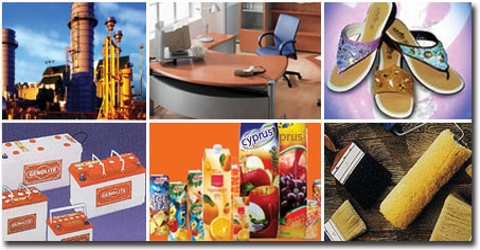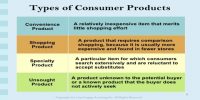An industrial product is a good used by a company for business consumption. It is separate from a consumable good, which is purchased by individuals for personal and family consumption. One company selling goods to another for business consumption is a primary example of business-to-business, or B2B.
Classification of Industrial Products
The industrial goods are classified into the following major categories:
(i) Materials and Parts: These include goods that enter the manufacture’s products totally. The goods that enter the manufacturer’s products completely are classified as Materials and parts. Such goods are of two types:
- Raw material: Raw material that has to be manufactured is classified as manufactured materials. Including farm products like cotton, sugar cane, oilseed and natural products such as minerals (gas, iron ore), fish and lumber; and
- manufactured material and parts. These are again of two types – component materials like glass, iron, plastic and component parts such as electric bulb, steering, and battery. These are manufactured parts, and they are the 2nd type in the classification of industrial products.
(ii) Capital Items: To make any manufacturing business or large scale industry possible, capital items are used. These are such goods that are used in the production of finished goods. They complete in the different manufacturing unit but they can be used whenever they are part of the finished good. They are important in the classification of industrial products. These include:
- installations like elevators, mainframe Computers, and
- equipment like Hand Tools, Personal Computer, Fax Machines, etc. products have different buying motives and have different attitudes and use different approaches in the purchase of the products.
Characteristics: they never change in form, they are crucial parts of other finished goods, the brand is not important, often bought, and bought in large quantities. Examples: Yarn, zipper, and tires among others.
For example, an industrial buyer is expected to be more rational who will study the cost of different available. These are items necessary for the functioning of the organization, and very useful to be invested in for the long term. Due to their very nature, these capital items have a residual value to the company.
(iii) Supplies and Business Services: These are short-lasting goods and services that facilitate developing or managing the finished product. Any short term goods or material that is necessary for the day to day operations or a company or businesses is termed as supplies. They never become part of the finished goods but they are used to facilitate the business operation. Examples are brooms for cleaning the factory floor, stationary, and lubricating oil.
Business services are generally third party services given to businesses and they are in form right now because businesses do not want to spend the time or the energy on getting regular things running. These include:
- maintenance and repair items like Paint, Nails, etc., and
- operating supplies like Lubricant, Computer stationery, Writing Paper, etc.
The difference in the nature of consumer products and industrial products is important because of the fact that the buyers of the two sets of brands, their technical specifications and the goodwill of the supplier.
















